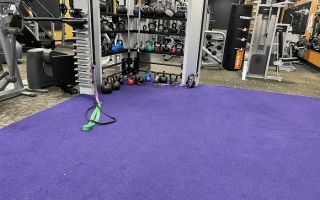- Introduction to Muay Thai Sparring
- Key Muay Thai Sparring Techniques for Beginners
- Mental Preparation for Sparring
- Muay Thai Sparring Etiquette
- Common Mistakes to Avoid
- Essential Gear and Preparation for Sparring
Introduction to Muay Thai Sparring
Muay Thai, often called the "Art of Eight Limbs," involves using fists, elbows, knees, and shins in a combat style that requires power, precision, and agility. For beginners, sparring is an essential part of the learning process that allows you to put theory into practice. It teaches you to control your movements, read your opponent, and react effectively under pressure. If you’re new to Muay Thai sparring, understanding the basics and preparing mentally is key to success and safety.
Key Muay Thai Sparring Techniques for Beginners
As a beginner, focusing on fundamental techniques is crucial for sparring. Here are some key moves to master:
- Jab and Cross: The jab and cross are foundational punches in Muay Thai sparring. These moves set up further attacks and help you gauge your distance from your opponent.
- Low Kick: Targeting your opponent's legs with low kicks is essential for controlling the fight and damaging their mobility. Practice aiming for the thigh to deliver effective strikes.
- Elbows and Knees: Elbows and knees are integral in Muay Thai. Mastering clinch techniques will allow you to land powerful strikes up close.
- Clinching: Muay Thai sparring often involves clinching, where you control your opponent’s posture to deliver knee strikes or control their movement. Practicing effective clinching techniques will allow you to dominate in close-range exchanges.
Mental Preparation for Sparring
Muay Thai sparring isn't just about physical skill; mental preparation is just as important. Before sparring, make sure you're calm, focused, and mentally ready. The best sparring sessions are the ones where you can stay relaxed under pressure, anticipate your opponent’s moves, and act decisively. Keeping a positive attitude, accepting mistakes, and learning from every round will help you grow as a fighter.
Muay Thai Sparring Etiquette
Muay Thai has a rich cultural tradition, and sparring etiquette plays a significant role in maintaining respect and safety in training. Some important etiquette tips include:
- Respect Your Partner: Always show respect to your sparring partner. Sparring is meant to improve both fighters, not to prove superiority.
- Controlled Force: Sparring is not about delivering knockout punches. Keep your power level under control to avoid injuring your partner.
- Communication: Before, during, and after sparring, communicate with your partner. Let them know if something is too hard or if you need a break.
Common Mistakes to Avoid
As a beginner, it’s common to make mistakes during sparring. Some common errors include:
- Overcommitting to Attacks: Overcommitting to punches or kicks can leave you wide open for counterattacks. Learn to strike with precision and follow through.
- Neglecting Defense: Beginners often focus too much on offense and neglect defense. Always keep your guard up and be ready to block or evade incoming strikes.
- Fighting Too Tense: Tension in your body can slow you down and exhaust you faster. Stay relaxed, especially in the early rounds.
Essential Gear and Preparation for Sparring
Before engaging in Muay Thai sparring, make sure you have the proper gear to protect yourself and your training partner:
- Hand Wraps: Proper hand wrapping is crucial to avoid injuring your knuckles and wrists during punches.
- Gloves: Invest in a quality pair of Muay Thai gloves to protect your hands and wrists during sparring.
- Shin Guards: Shin guards are essential for Muay Thai sparring to protect your shins and legs from impact during kicks.
- Headgear: For beginners, headgear is recommended to protect your head and face during sparring sessions.

































